Inside
How the community functions on a social level
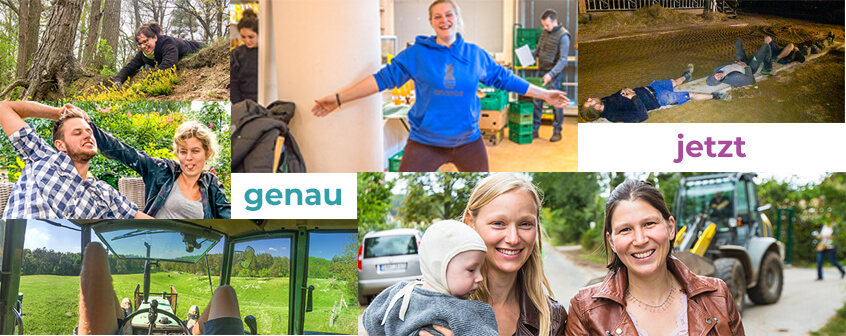
We are a colourful community made up of very different people. It amazes us that we get along, some of us for more than 20 years.
Each person is different
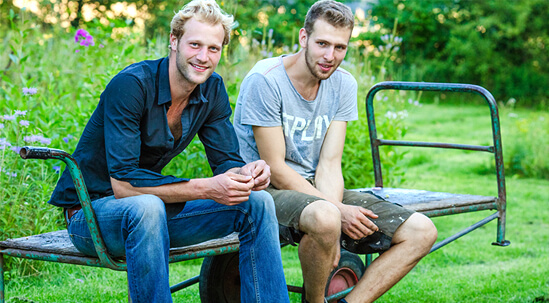
You always assume when you meet someone, that the other person sees and experiences the world in a similar way to you. If you get to know them then you realise that this is not necessarily the case. If you get to know each other better, it becomes clear that other people are not only a bit different from you, but see, smell, taste and feel differently in this world. Like a cosmos of its own, different people show up – and they have to get along with each other ?!
If you completely separate your professional and private lives, as is usually the case, you can manipulate it in this way: at work you just keep your soul out of the equation and fulfil what needs to be done; private life usually includes only a few people in the inner circle and is often difficult enough even then. But a community where most people have to meet and get along each day, or at least a couple of times a week, both at work and on a personal level? That already makes certain demands on each individual.
Learning to interact with each other – and with yourself
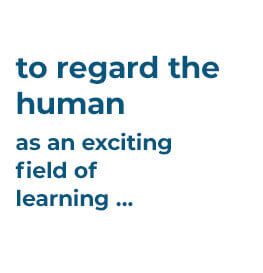
It’s the case in Sammatz that the intensity of encounters between employees is not somehow prescribed, rather it encompasses the entire spectrum between near and far. We are happy about employees who live in Sammatz (or in the surrounding area) and focus their private lives largely on the family setting as well as the others who also like to communicate about human issues. To value everyone as human beings is certainly a quality of our community. It does not matter which nationality or skin colour you have; your appearance or profession are unimportant. The main thing in order to get along – and not just to maintain a fixed status, but to progress individually and collectively – are human qualities such as listening and learning to empathise with each other; to regard the human as an exciting field of learning.
When I say develop, I mean things such as dealing with jealousy and envy, to not let my moods affect others, to assess the extent to which my judgment of a situation arises only from my subjectivity or actually corresponds to an objective assessment. ‘
Worth more than gold
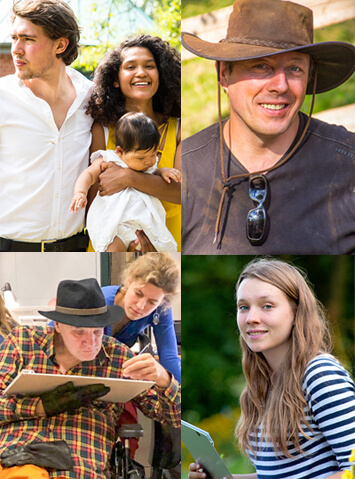
Here, what Goethe considers more valuable than gold in his fairy-tale ‘Conversations with Goethe’ comes into play. It lives from inhalation and exhalation, ie from listening and talking to yourself and from questioning! Another thing is honesty and trust. In other words, to be ready to make friends. To really accompany yourself on your journey is only possible if you also talk about things that are seemingly embarrassing. A space where souls meet in a friendly way. If you’re hurt perhaps due to a lack of tact, desire to chat or if information is used for purposes that are only for your benefit – all of this damages the soul space, which in its positive impact shapes our community and also gives other people the opportunity to be the human being that they feel they are.
But you must learn how to to deal with it, because the the road to friendship is unfortunately not without mutual pain, envy or other tactlessness.
‘What an asshole, I’ll never tell him anything again’; ‘How can you abuse my trust like that!’ : We have encountered such things on our road again and again for 20 years, but it can be dealt with.
When it is vocalised, when you can detach yourself and not identify with it, when you get things out of the emotion directly and realises that the other one is
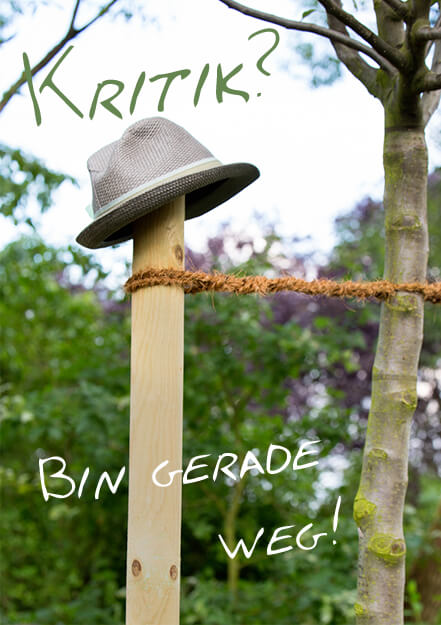
Everything is painstakingly difficult, but how else should a community function? There are no psychological or spiritual techniques to be learned schematically, only the laborious struggle with yourself to slowly become a ‘better person’. You also increasingly notice how much is still lacking.
Thinking and living
The whole thing only works if we take a mental activity seriously, which, although each person uses constantly, is strangely overlooked and not practiced. This is the thinking that we need to do in everyday life in our dealings with each other. It gives me both the possibility of reflection and it can lead me to understand how to judge and touch something in a beneficial way. If you just think about it in greater detail, you realise that we can only understand what is meant by the thinking and the concepts of the things it processes. Even if I’m in love with someone, I’m aware of it only when I form a concept of it. Otherwise, this remains a dreaming state that drives me unconsciously and uncontrolled through the world. The more accurately I can therefore describe a thing conceptually, the more successful communication with others can be. This ranges from a simple work meeting to profound human or philosophical questions.
It’s not easy just not to let your thoughts wander
We therefore attach great importance to the element of thinking and its training, even if this is often annoying and exhausting. It’s not easy to let your thoughts not wander just because expressing yourself in a precise way makes demands that are physically comparable to intensive training in a gym. Thinking is exhausting for me at first, but you’ll see: Other people have a lot of it. So do you.
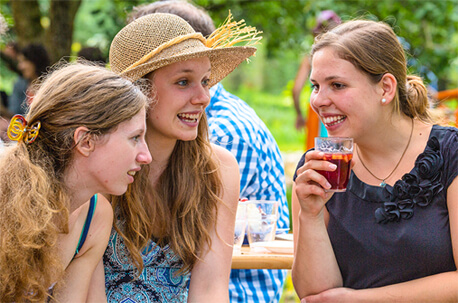
We came to follow this road through the Anthroposophy of Rudolf Steiner. As a result, as far as possible and time after time, we have convinced ourselves, for example, that the present life not only means the beginning and end of our existence, but is one in a whole series of previous and later incarnations. For us, dealing with the experiences to which this thought leads has been fruitful again and again in such a way that we have found that a whole number of problems that arise in human interaction are solvable only by considering events that derive from a life before the present time on earth. Again, we have not achieved this through any spiritual techniques, but through the intensity of mental-spiritual experience in daily interactions with each other.
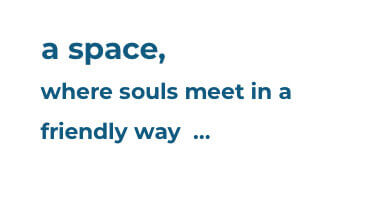
It can be said that sober thinking and intense coexistence are the cornerstones of our community. The problems that I have first reported here, which always occur when you want to build something like a community, can only be solved by learning qualities that are based on and emerge from these two activities. This characterises our coexistence and work, the atmosphere of the place as well as the contact with nature. It leads to a spiritual life for those who believe that our sensory world is permeated by something supersensible.



